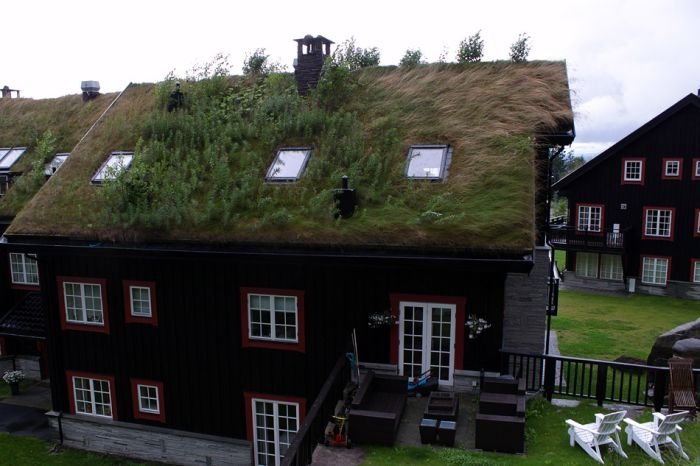|
|
Sod Roofs, Norway
|
In rural areas sod roofs were almost universal until the beginning of the 18th century. Tile roofs, which appeared much earlier in towns and on rural manors, gradually superseded sod roofs except in remote inland areas during the 19th century. Corrugated iron and other industrial materials also became a threat to ancient traditions. But just before extinction, the national romantics proclaimed a revival of vernacular traditions, including sod roofs. A new market was opened by the demand for mountain lodges and holiday homes. At the same time, open air museums and the preservation movement created a reservation for ancient building traditions.
From these reservations, sod roofs have begun to reappear as an alternative to modern materials. The more recent idea of the green roof is developed independently from the traditional sod roof, but could benefit from the experience gathered during hundreds of years in Scandinavia.
Birch bark is eminently suitable as a roof covering because it is strong, water-resistant and soil-resistant enough to last for generations, although 30 years was considered the normal lifespan of a sod roof in most places. Birch is common everywhere in Northern Europe, and its bark is easily stripped from the trunk in spring or early summer, while the sap is running. One incision with a knife lengthwise down the trunk between two branches will produce a correspondingly wide sheet, its length equal to the circumference. The outer, flaky (white) bark is pried loose from the inner (green or brown) layer, the phloem. Removing the phloem will cause the tree to die, but removing the outer bark will not harm the tree, although the scar will remain for many years. A new, coarser bark will replace the stripped bark.
|
|









